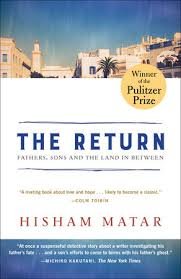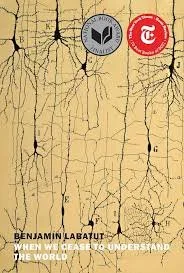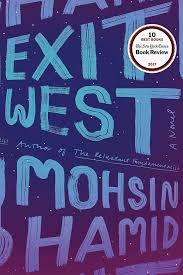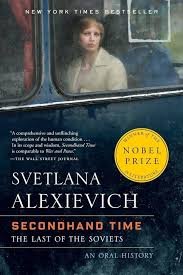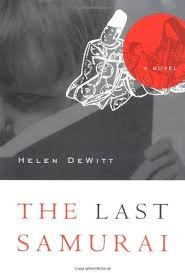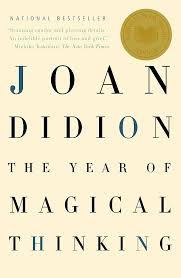Best Books of the 21st Century
The New York Times debuted their 100 Best Books of the 21st Century List. To select these books, they asked over 503 authors like Stephen King, Min Jin Lee, Karl Ove Knausgaard, and book lovers like Sarah Jessica Parker for their top ten favorite books that have been published between January 1, 2000, and today. As I was browsing it, I realized there were several blind spots for me and ones that I’ve always wanted to read. There’s no time like the present! For the months of August, September, October I’m going to read twenty books off this list that I haven’t read. At the end, I’m going to compile a list of my top ten favorites from the 21st century. If you want to join, I'd love to hear what you’re reading or what your top ten books are!
#98: Bel Canto by Ann Patchett (2001)
I have enjoyed quite a few Ann Patchett books, but I haven’t read this one. It’s about an opera singer who performs at a Japanese executive’s birthday party, but the party goes awry when guerrillas take everyone hostage.
Patchett’s writing + this exciting plot = a very promising book.
#89: The Return by Hisham Matar (2016)
Winner of the Pulitzer Prize in memoirs, this book is about a man whose father, a former diplomat, was kidnapped by the Libyan government. After the overthrow of Qaddafi, he returns to Libya to find his father in hopes that he’s still alive. This sounds like a must-read.
#83: When We Cease to Understand the World by Benjamin Labatut, Translated by Adrian Nathan West (2021)
A nonfiction book about the isolation, insanity, and genius of Fritz Haber, Alexander Grothendieck, Werner Heisenberg, and Erwin Schrödinger as their discoveries helped and hurt humanity? Sign me up!
#75: Exit West by Mohsin Hamid (2017)
On the brink of civil war, two lovers hear about a magical door that can whisk them to safety. As the war rages on, they leave their known world behind and enter an unknown future.
This is another one that has been on my TBR since it came out. I like the mashup of magical realism and commentary on immigration.
#72: Secondhand Time by Svetlana Alexievich, Translated by Bela Shayevich (2016)
Winner of the Nobel Prize, Alexievich documents the downfall of the Soviet Union in a unique way through the lost stories of men and women who were most affected.
I have never heard of this book, but I am fascinated by Russian history. Add it to the list!
#67: Far From the Tree: Parents, Children, and the Search for Identity by Andrew Solomon (2012)
Solomon interviews over 300 families with children who have Down syndrome, are autistic, are prodigies, or have become criminals. At what point should parents accept their children for who they are, and when should they push them to be the best that they can be?
I have a friend who is reading this and really enjoying it. I’m excited that it made the list.
#58: Stay True by Hua Hsu (2022)
Living in Berkley in the 1990s, Hsu writes a memoir about losing her friend to a random carjacking. I’ve had this one on my shelf since it came out and haven’t cracked it open yet. Since it won the Pulitzer Prize AND is on this list, I’m anxious to start it.
#57: Nickel and Dime: On (Not) Getting by in America by Barbara Ehrenreich (2001)
The author works different minimum-wage jobs and reports on the physical and mental toll they take on people.
I suspect this one will be a hard one to read.
#55: The Looming Tower by Lawrence Wright (2006)
A book about the events leading up to 9/11 through the lens of two al-Qaeda leaders, the FBI’s counterterrorism chief, and a former head of Saudi intelligence was accomplished by over four years of research and interviews conducted all around the world. I loved Black Flags: The Rise of Isis by Joby Warrick, and if The Looming Tower is half as well-researched as that one, I’m in for a treat.
#38: The Savage Detectives by Roberto Bolaño, Translated by Natasha Wimmer (2007)
Two poets search for another poet who has vanished, told in three parts from different POVs.
Daniel Alarćon (author of At Night We Walk Circles) claims he isn’t the same writer he was before reading it. It also has a 4.17 rating on Goodreads. How could I not add this to my list?
#32: The Line of Beauty by Alan Hollinghurst (2004)
Set in the 1980s in London, Nick moves in with his crush and his wealthy family, stepping into a life of wealth and luxury. I’m getting a little bit of Saltburn vibes from it. Fun fact: it was the first book in the gay literature genre to receive the Booker Prize.
#29: The Last Samurai by Helen DeWitt (2000)
A young prodigy goes on an adventure to find his father.
This one has been on my TBR list for years, and I recently picked it up at The Strand. I’m excited to have a chance to read it.
#26: Atonement by Ian McEwan (2002)
It’s 1935 in England, and 13-year-old Briony Tallis saw her sister kissing a servant. The crime Briony commits next will change all of their lives forever.
I loved Ian McEwan’s Nutshell. The writing and story were so clever. And as an added bonus, it’s sitting on my husband’s bookshelf as I type.
#25: Random Family by Adrian Nicole LeBlanc (2003)
This book follows the lives of two Puerto Rican teenagers, giving the reader a glance into the complexity of the ghetto.
This promises to read like a fictional novel. This was a pick from Matthew Desmond. Anything he loves, I’m sure I will love.
#12: The Year of Magical Thinking by Joan Didion (2005)
After the sudden loss of her partner, her daughter lays in a hospital bed, dying. Didion does what she does best and picks up a pen to make sense of her pain.
After reading The Friday Afternoon Club, written by Didion’s nephew, and getting to know Didion’s partner and her niece, I am much more interested in this book.
#10: Gilead by Marilynne Robinson (2004)
Spanning three generations from the Civil War to the 20th century, this one tells the story of American history. In the NYT article, author Kate DiCamillo shared her favorite quote from the book, and it was quite beautiful. It’s usually not my type of book, but hey, it’s in the top ten for a reason, right?
#9: Never Let Me Go by Kazuo Ishiguro (2005)
A dystopian novel about two students at a boarding school who are allowed very little contact with the outside world.
I’m a huge fan of Ishiguro’s writing and themes in Klara and the Sun. So, I’m excited for this one.
#7: The Underground Railroad by Colson Whitehead (2016)
Two slaves take the risk of escaping their hell using a supposed underground railroad, but it doesn’t go exactly as planned, and they begin to be hunted.
I’m late to the train (no pun intended) with this one. It received so much hype that I avoided it because I didn’t want it to be let down (looking at you, Tomorrow, Tomorrow, Tomorrow). I’m going to take the leap.
#6: 2666 by Roberto Bolaño, Translated by Natasha Wimmer (2008)
Composed of five different parts, each with robust characters who are each drawn to Santa Teresa in Mexico.
I love long novels that builds a world that the reader wants to stay in. It promises this and that nothing gets lost in translation. I’m ready for it!
#2: The Warmth of Other Suns: The Epic Story of America’s Great Migration by Isabel Wilkerson (2010)
From 1917 to 1970, there was a massive unreported migration of black Americans from the south to the northern and western states. This book is described as “reading like a novel” (a lot of nonfiction on this list promises that) and “bears down on the reader like a locomotive.” I’m interested.
"One glance at a book and you hear the voice of another person, perhaps someone dead for 1,000 years. To read is to voyage through time." – Carl Sagan


